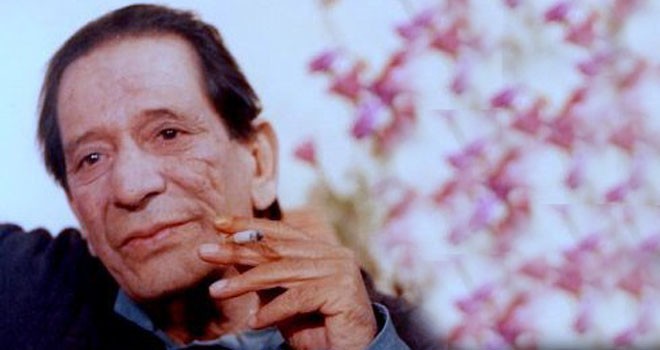
Khurshid Anwar’s contribution to classical music and the Pakistani film industry must be re-emphasised

Khawaja Khurshid Anwar was a famous music director of the Indian film industry, before his return to Lahore in 1952. In India he had composed popular songs for films like Ishaara, Parwana and Singaar. The Pakistani film industry was in its infancy. By the end of 1952, only 34 films were produced in five years.
Anwar formed a team which included; Masud Parvez as director, Syed Imtiaz Ali Taj as writer, Qateel Shifai and Tanvir Naqvi as song writers. The team produced movies like Intezar, Jhoomer and Zehr-e- Ishq from 1956 to 1958 which opened the industry to new ideas. These films focused on psychological problems of heroes which were rooted in cultural conflict.
Besides his love for musical instruments, Khawaja Sahib was also a man of letters. He wrote stories and screenplay of his films. He was a poet by nature and his tunes have a romantic poetic touch. In a conversation, Faiz Ahmed Faiz narrated that during college days Anwar was interested in poetry while Faiz Sahib himself loved music.
A few poems of Khurshid Anwar were published in reputed literary journals like Humayun. But, destiny had chosen different paths for these two young men. Now the world knows Faiz as a poet and Anwar as a music composer. Anwar and Faiz Ahmed Faiz’s friendship lasted till death. It is a strange co-incidence that both died with a gap of less than one month.
During student life Anwar was a staunch revolutionary and sympathiser of Bhagat Singh. He was implicated in a case of terrorism and imprisoned for two years. But he was released four months later after a decision of the appellate court. Faiz also acknowledged that as students Anwar taught them socialism. But after completion of studies he preferred music to everything else.
During the last stage of his life Anwar was apprehensive about the future of classical music since the method of teaching is only through Ustad-Shagird (teacher-student) relation. He was worried that under this method of transfer i.e. from one person to another, the authentic style of rendering a raag shall be lost.
To preserve classical music, he recorded Gharanon ki Gaiki in 10 volumes known as Raag Mala and Ahang-e-Khusrawi in 20 volumes. This work is regarded as substantial in classical music history.
In the 1980s Anwar Maqsood invited him to participate in a popular television show ‘Silver Jubliee’ but he excused himself on one pretext or the other. Later he told me that he was interested in discussing classical music history but the audience of a TV show might not have the patience for technical details.
He always argued that subcontinent classical music is indebted to Muslim musicians and not to Sanskrit texts. Indian music in granths was forgotten as it happened with Sanskrit language. Bhatkhande on the basis of material collected from Persian books and Muslim Gharanas wrote his books and on the basis of those claimed that he introduced ten thaat. Despite his reservations for participation in a TV show, Anwar Maqsood wanted Pakistan Television to record his views on classical music. The opportunity was provided by the visit of Dr Brian Silver, a Harvard scholar of music. He wanted to record a monologue of Khawaja Sahib. In those days, for recording there was no other option than to use technical resources of PTV.
When the TV team was setting camera and lights, Khawaja Sahib quipped "Have you read the article of Ibn-e-Insha published in literary magazine Funoon". The team could not understand the subtle satire because it had not heard of the article.
The story behind Ibn-e-Insha’s article was that Insha Jee after a serious illness was admitted in a London hospital. A PTV team, perhaps on some other official duty in London, recorded a brief interview of Ibn-e-Insha in the hospital. About this event Insha Jee wrote in the article that "TV team ney hamary mukhtalaf zaiviaon see khob tasverain banaain. Hum bhi un ka maqsad samhj gaiy they. Hum dil he dil main muskuraye aur thaan li key un ka maqsad pura na honey dey gaiy". Inshajee was conveying that the TV team wanted to shoot stock shots which could be used for a documentary when his death was announced on TV and therefore he had decided not to die.
Khurshid Anwar’s reference to Insah Jee’s later proved prophetic. Television channels have only those shots of Anwar where is engaged in a monologue for Dr Brian which they show on his anniversary.
People lament that celebrities are remembered only after their death. There is no harm in doing that. This leads to a question why can we not establish a national film and art achieve where we should store copies of works of artistes, their interviews and articles on their technique and style which should benefit colleges and universities that teach art and media?